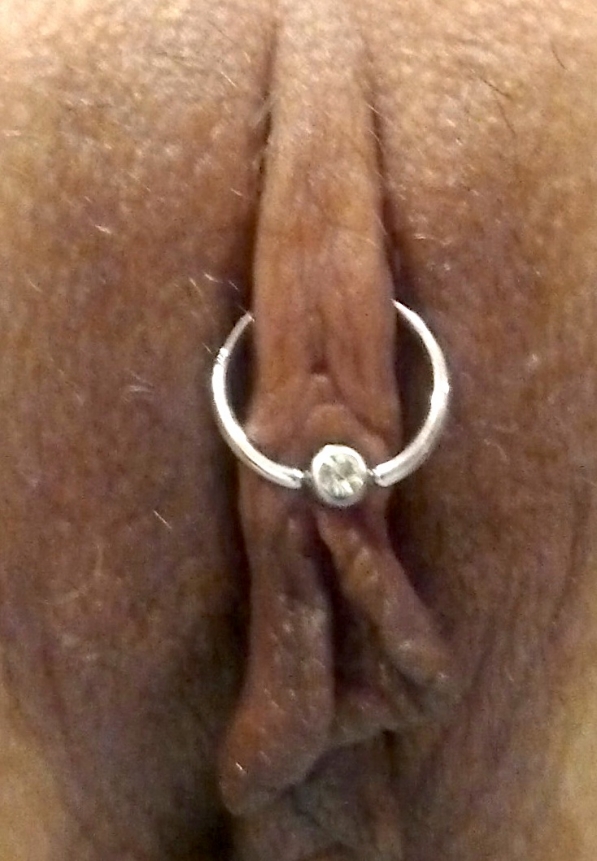
The HCH piercing traverses a pinch of hood tissue above the clitoris, which many find aesthetically appealing. Unfortunately, because of the way most vulvas are configured, the HCH won’t be able to deliver the added sensation the majority of piercees desire. If you’re among those seeking genital piercing to enhance your erotic pleasure physically, a different placement may be more worthwhile. Of course, a vulva piercing can be visually delightful and boost self-image, even if not placed for extra stimulation.
If you're anatomically suited and simply in the market for an attractive "hood ornament," then this piercing could be for you.
General Information
Most vulvas are formed with a hood that nearly—or completely—covers the clitoral glans. Therefore, a ring in an HCH simply rests atop the hood. For this piercing to be stimulating, your clitoral glans needs to be somewhat exposed, the piercing must be perfectly placed, and the jewelry accurately sized. Only when all of these conditions are met can the bead of the ring touch your clitoris to add sensation.
Want to get pierced by Elayne Angel?
Placement
Ample tissue in the configuration of a hill is needed for an HCH piercing. If you have a valley with a flat, concave, or deeply recessed hood, you are not a candidate. If your build is not symmetrical, which is common, the jewelry tends to twist or lean to one side, causing discomfort, migration, or other healing difficulties. Most vulvas are formed with a hood that nearly—or completely—covers the clitoral glans, preventing jewelry from touching it. For an HCH piercing to be stimulating, your clitoris must be exposed, the piercing perfectly placed, and the jewelry accurately sized. Then the bead on a ring can touch your clitoris to add sensation; otherwise, the HCH will be . . . just a hood ornament.
The piercing should go in the natural creases at the base of the hood tissue where it forms from your body. Your piercer should carefully check for blood vessels because they are sometimes located in this area. If a vein cannot be avoided, then the piercing should not be attempted. Your piercer must also be sure that your hood tissue is pliable enough to pinch up and lift away from your clitoral shaft below, so they don’t unintentionally pierce it.
The best level for an HCH depends on your anatomy and your goal. You may prefer to have it positioned toward the top of your hood for visibility if you want the piercing solely for adornment rather than sexual enhancement. For sensation, the placement works in conjunction with the ring diameter so that the ball rests on the desired spot.
Note that I ALWAYS wear gloves for client contact! Images without gloves were sent to me for consultations, and are posted anonymously and with permission.
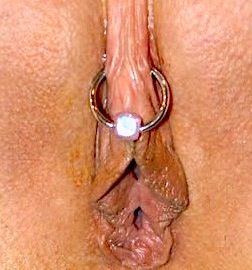
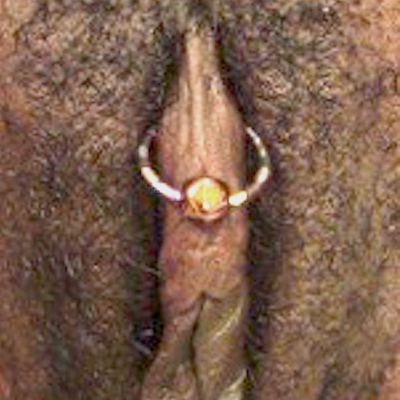
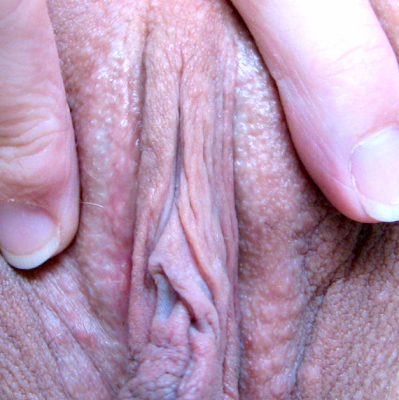
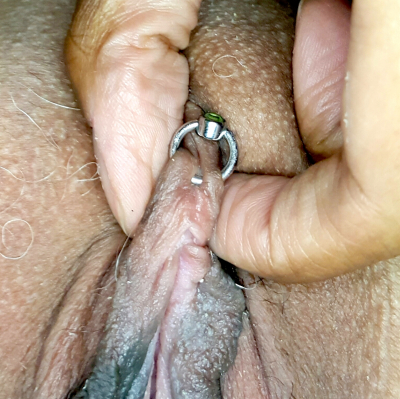
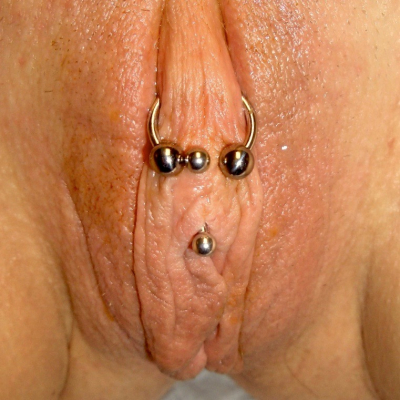
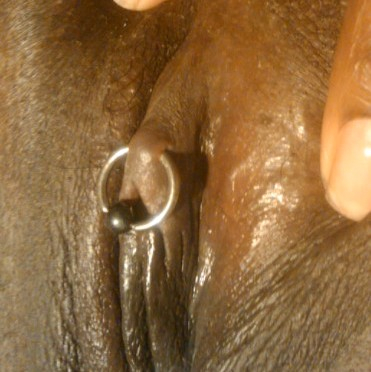
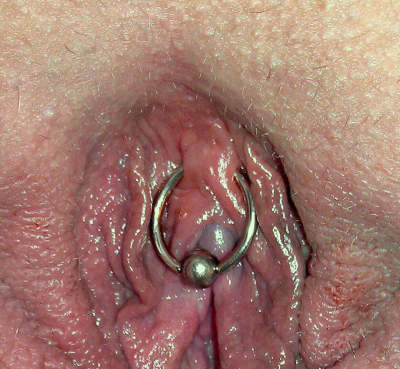
Jewelry
I use 14 gauge as the thinner option, and 12 gauge as the thicker size. The correct diameter ring will encompass the tissue without pinching. A bar is seldom comfortable or safe. If it is short enough to avoid twisting, it may embed or pinch. If it is long enough to accommodate your hood, it will be prone to shifting and causing problems when you close your legs. A modified circular barbell (of the type I use for triangle piercings) is superior for safety and comfort during healing, especially if your build is tall, with a lot of height from the base to the edge of your hood.
The base circular barbell should be a diameter or two smaller than you need to accommodate your tissue. I then widen the gap between the balls by spreading out the ring. This is very easily accomplished with ring expanding pliers. The gap between the circular barbell balls must be wide enough to accommodate your hood so the jewelry tucks down flat against your body. The surrounding structures hold the jewelry securely in place. The portion of the ring that passes through your tissue fits properly in the limited space between your legs without twisting.
This alternate style will not be stimulating due to the gap between the balls. But after successful healing, you can change to a ring.
A bar is seldom comfortable or safe for initial jewelry: if it is short enough to avoid twisting, it may embed or pinch. If it is long enough to accommodate your hood, it will be prone to shifting and causing problems when you close your legs. Bar-style jewelry cannot be expected to impact sensation since it will not touch the clitoris at all.
If you have a substantial amount of tissue in the piercing, you can safely enlarge it to rather hefty sizes over time. You may find the HCH more stimulating when you wear heavier jewelry. After six months or so, it should be ready to expand one gauge.
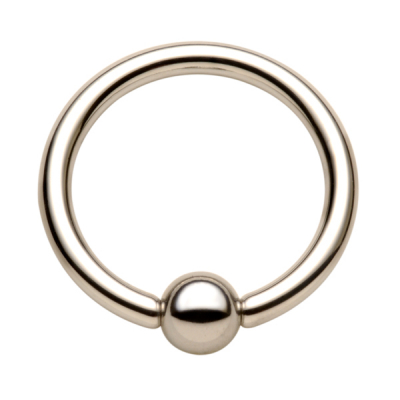
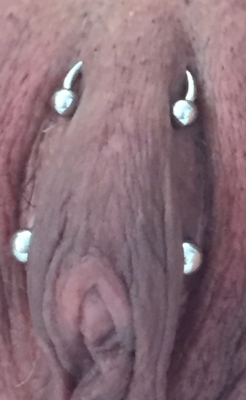
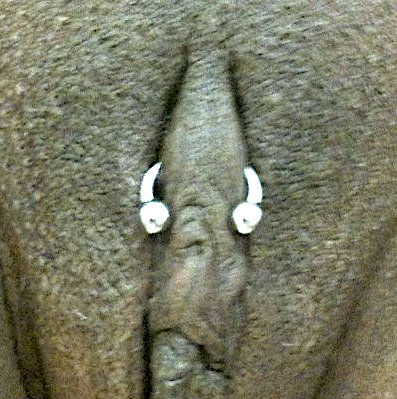
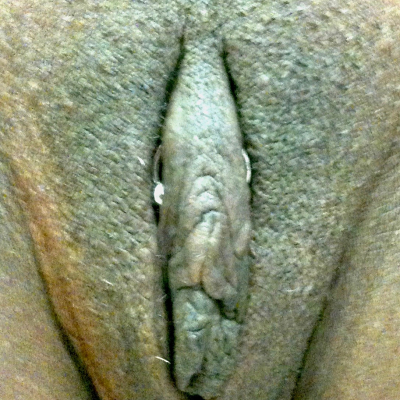
Procedure
I find forceps well suited to the HCH piercing. They not only secure the skin, but they also help to assure that only the hood is clamped and pierced, and not the nerve bundle just underneath. Tissue manipulation can help to separate the hood from the clitoral shaft. I am careful to pinch up the skin from the midline in anticipation of its tendency to fold in on itself. Otherwise, you can end up with a channel that is too shallow in the middle and wears through over time, or an unsafe double piercing that misses the center completely and just passes through an unstable sliver of skin on each side of your hood. If the tissue cannot be lifted and kept elevated in the center for the procedure, do not attempt this piercing. Some piercers use a freehand technique or receiving tube.
Learn which piercing(s) you are built for?
Healing and Troubleshooting
It can be challenging to accommodate horizontal jewelry in a vertical space, so this is not a practical piercing for many builds. The most common complaint during healing is that the jewelry twists. Prevention is key: if your anatomy is not well suited, don’t get an HCH piercing. If your build is not too asymmetrical, twisting should be minimized by wearing a C-ring or U-ring (widened circular barbell). Visit your piercer if you experience trouble, as you may need a jewelry adjustment or change—even during healing. Early intervention can prevent more severe issues.
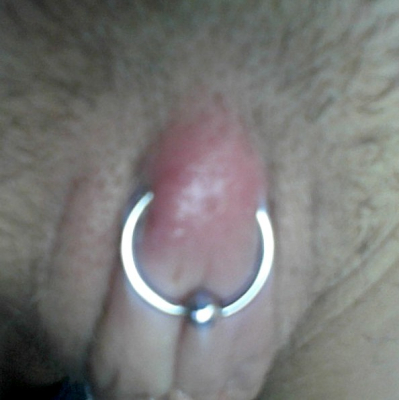
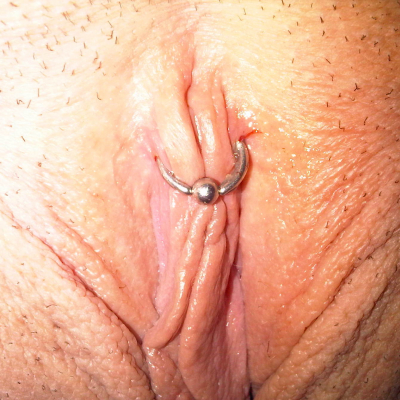
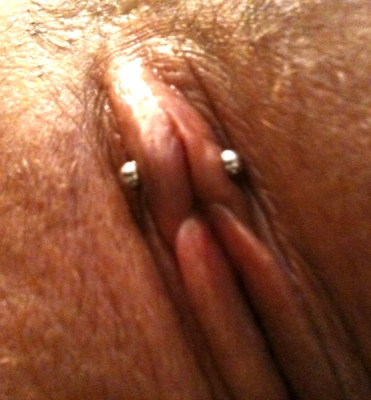
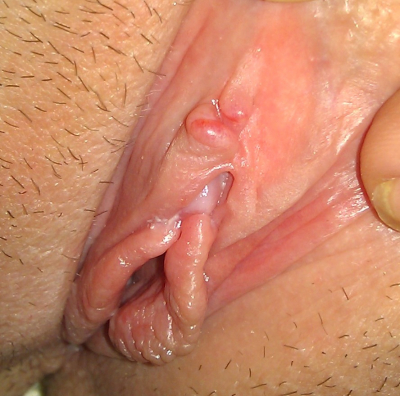
What My Happy Clients Say
My piercing is absolutely beautiful! It's been one month since you performed my HCH in Atlanta, and I still can't find the words to tell you how utterly pleased I am with every aspect of your skill and care.
From our very first contact, I knew that I would trust my body to no other piercer.
After doing a lot of research, including buying and reading Elaynes book cover to cover, I knew she was the right piercer for me.
I flew three hours but it was absolutely worth it! had a wonderful experience with Elayne. You will too!
Elayne, did my piercing in Dallas a few years ago and it was well worth the trip to Texas! I thank you so very much for your precision and expertise and you treated me like family which is above and beyond.
And I LOVE the benefits of my beautiful piercing!
